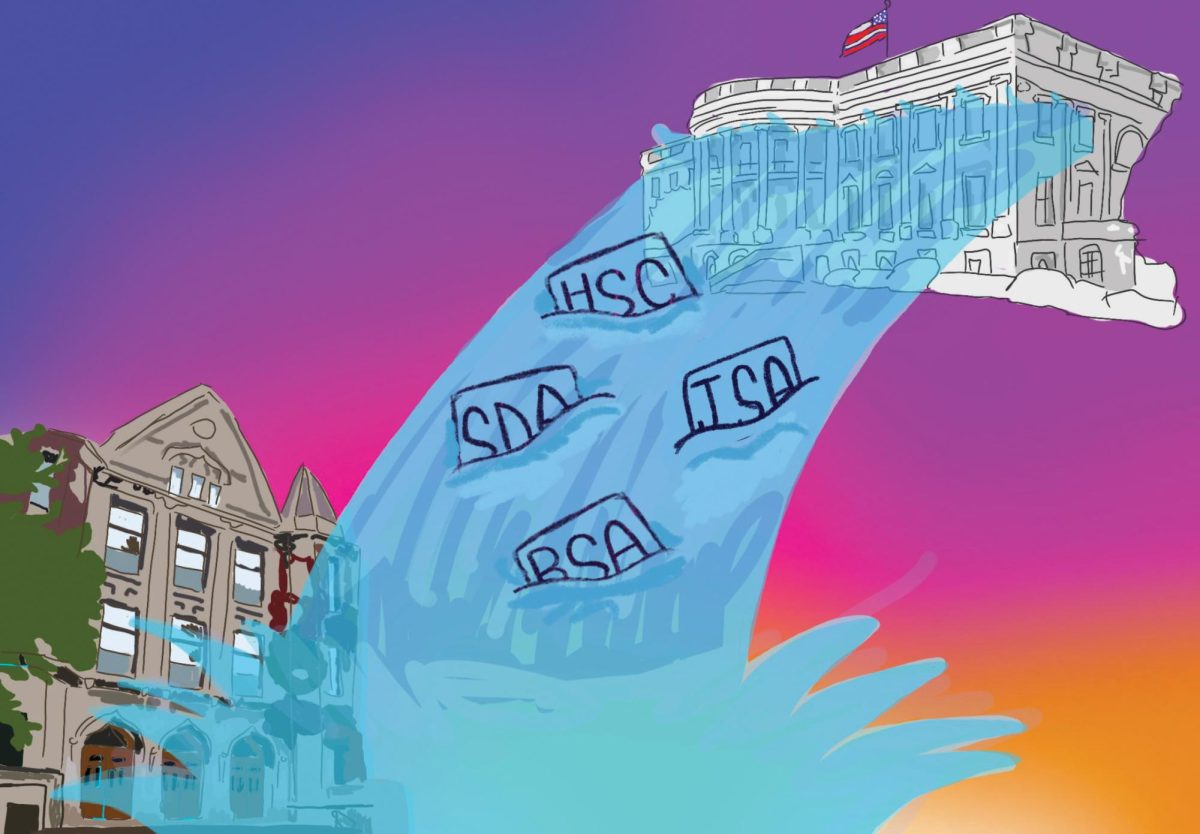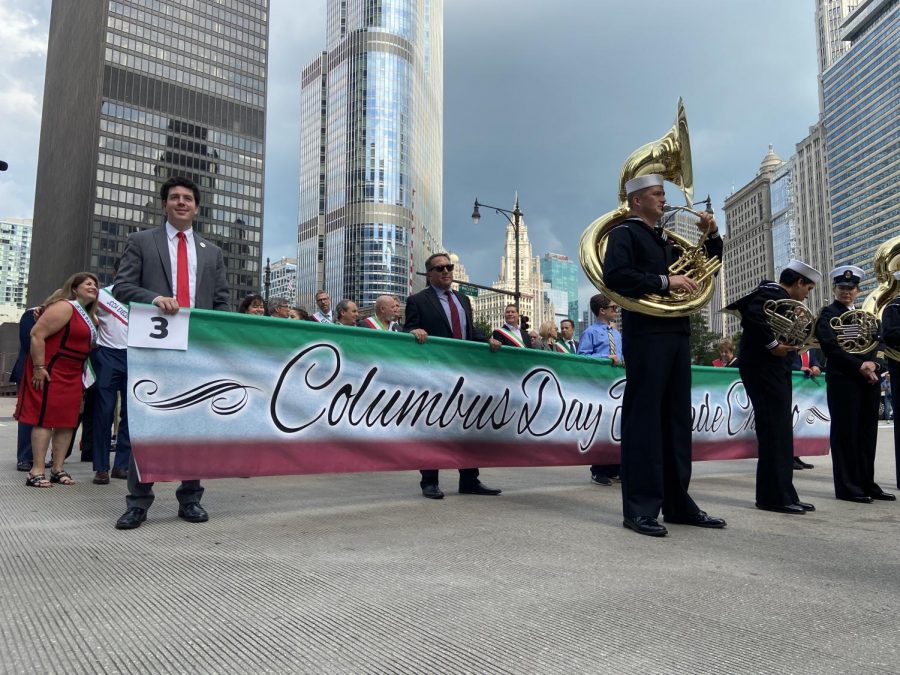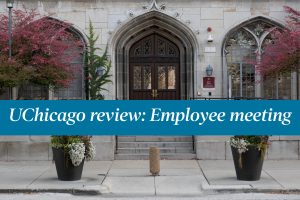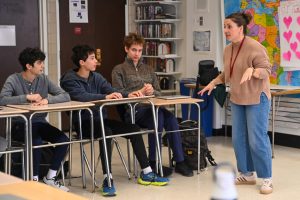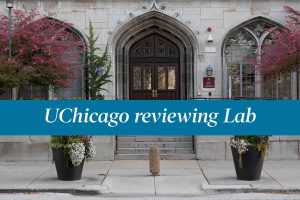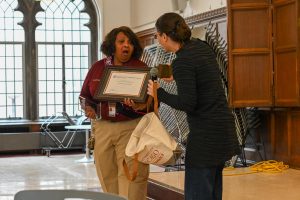Parade watchers express differing views on Columbus and holiday
October 19, 2021
The Columbus Day parade took place downtown in the Loop, early afternoon of Monday, Oct. 11. Under overcast skies small crowds of people gathered behind barricades to watch floats, bands, and other performers march down State Street.
Columbus Day has become a controversial holiday, as the national conversation around colonization has shifted in recent years. It was the first time in two years the parade took place with participants and spectators expressing a range of viewpoints about the event — and the holiday as a whole. Many activists suggest changing the holiday into one to celebrate the Indigenous people of the Americas, while others reassert the importance of Italian pride by celebrating Christopher Columbus.
Because Columbus was Italian, many Italian Americans use Columbus Day to show pride in their culture.
“We’ve been coming every year — I’ve been coming since I was a child, since I grew up in Chicago, and I love it since we get to celebrate our heritage and culture and dedicate a whole day to it,” Laura Dupalo said.
For Laura and her family, attending the Columbus Day parade helps them not only celebrate their culture but also commemorate their family’s immigration story.
“My mom here, Maria, she’s an immigrant from Italy, and I’m born and raised here and we keep the Italian culture by coming every year,” Ms. Dupalo said.
Like Laura and her family, Jerry Miceli, a first-time attendee, shared similar sentiments about celebrating his Italian American culture.
“My parents are from Italy, so it means a lot, as Italian Americans. Everything about our culture: our food, our arts, our sports. There’s so many great Americans that contribute to this country,” Mr. Miceli said.
However, not everyone shared the same views. Loren Taylor is an activist and founder of awokenet.com, a website dedicated to publishing information about social justice work. He opposed the parade and was one of few attendees openly protesting the event.
“I feel like clowning. Last year I was out here yelling at people because I can’t understand, well, even since I was a kid they told us Christopher Columbus discovered America. But, I mean, how did you discover a place that people are already living, right? And when I found out that Joe Biden actually declared the day Indigenous Peoples Day, I thought it was the thing to do to kind of come out and remind people of that,” Mr. Taylor said.
The prospect of changing the holiday into Indigenous Peoples Day has been discussed for a few years but has only gained significant popularity within the past two. Illinois designates the last Monday in September as Indigenous Peoples Day, and the Chicago Public Schools calendar replaced Columbus Day. On a national level, President Joe Biden proclaimed Oct. 11 as Indigenous Peoples Day on Oct. 8, even though the federal holiday remains Columbus Day.
Nicole Williams, director of diversity, equity and inclusion for the Laboratory Schools, said that Columbus has never represented all Americans, and now that is becoming a more mainstream view.
“But I think as we…as the public conversation becomes more mainstream, I think that’s where the push has been. And mainstream here often means white. When white people start to talk about it takes a more mainstream conversation I should say, and that’s how it gets to the city level and the various levels of government and city governments really asking what holiday they really are they gonna celebrate, center and honor,” Ms. Williams said.
Mr. Miceli was not opposed to the idea but wanted to preserve a dedicated day to celebrate his nationality.
“I think there’s room for everybody. You can call it Italian American Heritage month, Italian American Day. Indigenous people, they could have their own day. Know what I’m saying? You got Hisapnic month. Every nationality got a month, or a day. Let’s all share it, you know what I mean? I don’t have a problem with anything,” Mr. Miceli said.
I’m Audrey Matei reporting for the U-High Midway with assistance from Téa Tamburo.




















